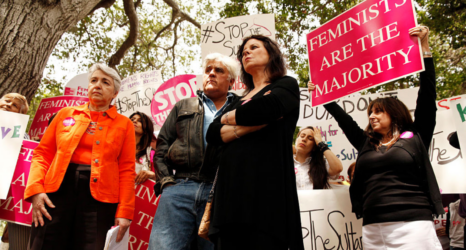Like many young girls who like to argue and debate, I grew up knowing that I was supposed to be a lawyer. Perhaps because my grandmother wasn’t allowed to be, or because my father couldn’t afford to be, I was always told that being a litigator was my calling in life.
I followed that calling to law school—and as a first-year student, when I attended a school career fair, I remember seeing and instantly dismissing the District Attorney’s (DAs) internship table. Despite the fact that criminal law was my favorite subject, I had no intention of aligning myself with DAs. DAs worked with the police, putting mostly Black and brown people behind bars. They spouted tough on crime rhetoric and profiteered from villainizing young Black people.
If I only knew then the power of the roughly 2,400 prosecutors across the country—most of whom run completely unopposed—I probably wouldn’t have walked by their table so quickly.

District attorneys are the unwatched gatekeepers of our criminal system. They hold discretion at every step of the criminal justice system, from suggesting bail amounts to forcing plea agreements to acting as the final arbiter of whether to prosecute community members for marijuana possession. This makes them incredibly effective policymakers—capable of creating both positive and destructive outcomes for their communities.
Amid recent wide-scale attacks on a woman’s right to choose, we are once again reminded of the power that DAs hold over the everyday lives of their constituents. In the face of these unprecedented and well-coordinated attacks on abortion rights, we need strategies that are both long-term and immediate to protect our constitutional right to abortion. While I applaud and support the various campaigns that plan to challenge these bans at the legislative level and in the courts, this will be a long-term battle. There are actions we can take right now to try to protect women, actions that were needed even before these bans were passed.
We can pressure DAs to refuse to criminalize pregnancy and use their discretion to ensure people are not prosecuted for their pregnancy outcomes nor for exercising reproductive autonomy. My organization, Color of Change, has made DA accountability a centerpiece of our drive to end mass incarceration through our Winning Justice campaign, forcing elected prosecutors to instead use their discretion to ensure fewer people are caught in the system.
These officials have the power to keep their prosecutors out of maternal health matters. Because these laws are clearly unconstitutional on their face, DAs have no responsibility to see them enforced.
When pregnancy is criminalized, Black people are disproportionately impacted. We sadly know that Black pregnant people, who already die from pregnancy complications at three to four times the rate of white women due to inequitable and inadequate health care, will be the first ones criminalized under these abortion bans. A study of arrests and forced interventions on pregnant women found that approximately 71 percent were low-income women, 59 percent were women of color and 52 percent were Black women. Many of these new bans, in such states as Georgia, explicitly allow mothers suffering miscarriages to be charged with murder. Because Black families suffer the highest infant mortality rate in the nation, Black pregnant people are even more susceptible to facing criminal charges for miscarriage and stillbirth.
Nothing exemplifies this more than the case of Latice Fisherm a young Black mother from Mississippi who was arrested, imprisoned and charged with murder earlier this year after her baby was stillborn at home. Along with the Mississippi Reproductive Freedom Fund, National Advocates for Pregnant Women and other advocates, we successfully pressured DA Scott Colom to dismiss the original charges and lower Latice’s bail so that she could be released. But she could still face criminal charges next year when her case goes before a new grand jury, even though recent evidence has emerged that the original charges relied on deeply flawed and unreliable tests from the medical examiner’s office.
This power is no more salient than several state legislatures’ decision to test Roe v. Wade and criminalize the pregnancies and reproductive choices of women. In a moment like this, it is important that we have elected prosecutors who view their role as true advocates for the communities they claim to make safe.
Forty-two DAs have signed onto a letter stating that they will decline to prosecute women for their pregnancy outcomes—including District attorney Danny Carr of Jefferson, Alabama; District Attorneys David Cooke, Sherry Boston and Paul Howard of Georgia; and Xavier Becerra, Attorney General of California. Several elected DAs have already made this argument publicly and are refusing to enforce these recent extreme bans, including a number of DAs across Georgia and Salt Lake County Attorney Sim Gill.
DAs are elected and held accountable at the local level, so there is a role for all of us in this campaign. You can write your own DA to make your position clear and you can join Color of Change’s strategic efforts to bring pressure in key counties and states by signing our petition. In the weeks and months to come, we’ll have additional actions planned at both the local and national level.
No longer can reproductive rights activists and criminal justice advocates exist in silos. The issues of reproductive rights, incarceration and criminal justice reform are linked to one another—and we must come together to fight against the criminalization of our communities.





